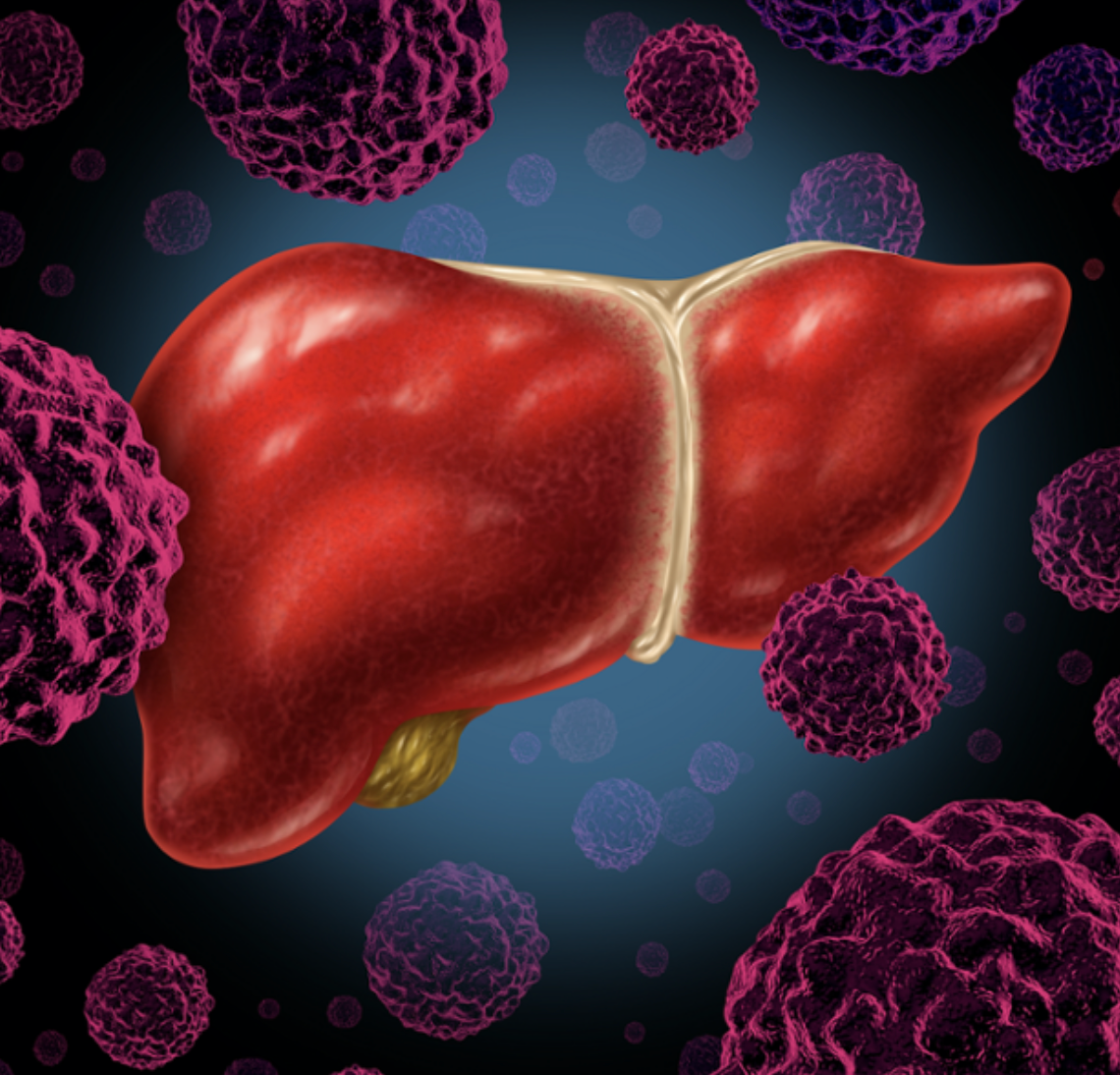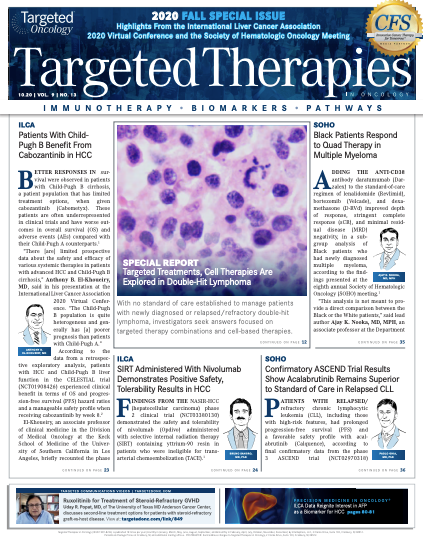Neoadjuvant Nivolumab Plus Electroporation With Curative Intent Safe and Possible in HCC
Neoadjuvant immunotherapy with nivolumab plus percutaneous electroporation has demonstrated early signals of promise in the treatment of patients with Barcelona Clinic Liver Cancer class A hepatocellular carcinoma, according to preliminary reports from the phase 2 NIVOLEP trial.

Neoadjuvant immunotherapy with nivolumab (Opdivo) plus percutaneous electroporation has demonstrated early signals of promise in the treatment of patients with Barcelona Clinic Liver Cancer (BCLC) class A hepatocellular carcinoma (HCC), according to preliminary reports from the phase 2 NIVOLEP trial (NCT03630640) presented during the International Liver Cancer Association 2020 Virtual Conference.1
“We have data from the preliminary analysis of this neoadjuvant phase which show that there is active recruitment of lymphocytes in the tumor and microenvironment which may be potentialized with the ablation effect of electroporation. Also, we observed possible antitumoral activity with reduction in size and also of potential necrosis of the tumor before ablation,” said coordinating investigator Pierre Nahon, MD, PhD, of the hepatology service at Jean-Verdier Hospital in Bondy, France, when presenting findings during the meeting.
Percutaneous ablation is the only nonsurgical curative treatment option for those with liver tumors. Recent advances in percutaneous ablation have led to the use of irreversible electroporation for the treatment of HCC. Nahon explained that this methodology is based on the induction of an electric current between the 2 electrodes, which limits the risk of thermal injury to neighboring critical structures in comparison with older thermo-ablation–based technologies. At the cellular level, the exchange of charges disrupts the cell membrane, leading to apoptosis and necrosis and shrinkage of the tumors.2
Academic centers are increasingly using this technology as it has been proved safe and effective and can be used in the treatment of HCCs that are not amenable to thermal techniques.
The French multicenter NIVOLEP trial sought to explore the safety and efficacy of electroporation plus neoadjuvant and adjuvant nivolumab. The study plans to include 50 patients from 6 centers with BCLC A HCC and either uninodular HCC between 3 and 5 cm or multinodular HCC to be treated with curative intent.
Eligible patients first receive 2 courses of neoadjuvant nivolumab given every 15 days prior to the electroporation procedure followed by adjuvant nivolumab given every 30 days for 1 year. The primary end point of the trial is the 2-year local recurrence-free survival (RFS) rate. Investigators assessed patients for both radiological and pathological response.
Nahon presented on the preliminary findings from the first 20 patients included in the trial who received neoadjuvant nivolumab.1 These patients had a mean age of 69 years and consisted mostly of males (90%) with cirrhosis (70%). The mean baseline α-fetoprotein (AFP) level was 56 ng/mL; 10% of patients had an AFP level above 50 ng/mL. These patients had a total of 37 HCC nodules, with the mean size of the largest nodule being 31.4 mm.
Of the 20 patients included in this analysis, all successfully received neoadjuvant nivolumab without any serious adverse events, but 1 experienced disease progression prior to electroporation and was excluded from the trial.
“We show that in clinical practice, this complex trial is quite accepted by patients and easy to organize in our centers,” Nahon said. “We did not observe any safety issues during this neoadjuvant phase and, importantly, no delay in the electroporation procedure. This procedure was potentially curative in 19 out of 20 patients.”
Nahon drew attention to the results of 1 patient whose AFP level went from 1291 ng/mL at induction to 65 ng/mL after electroporation. Additionally, on pathological assessment the patient showed almost complete necrosis of the tumor with major infiltration by polymorphonuclear cells, lymphocytes, and foam cells associated with extensive fibrosis, which was suggestive of an almost complete tumor regression.
By radiological assessment, investigators observed a reduction in 29% of all HCC nodules and 68% of nodules were stable; they observed progression in only 1 nodule (3%). By pathological response of nodules with paired pre- and postneoadjuvant treatment biopsies (n = 17), they reported a pattern of tumor response in 17% and an isolated increase of peritumoral and intratumoral infiltrating lymphocytes demonstrated in 23%.
“Clearly, these radiological and pathological changes were reported in a substantial number of patients—nearly half of this small sample size. This suggests that neoadjuvant nivolumab may have antitumoral and immunomodulation effects in these patients, which would be correlated with their outcome, which is currently being studied and correlated with biomarker studies being performed on these patients’ biopsies,” Nahon said.
References:
1. Nahon P, Seror O, Oberti F, et al. Radiological and pathological response to neoadjuvant nivolumab in patients with BCLC A HCC treated by curative percutaneous irreversible electroporation: preliminary report from the French multicentre phase 2 NIVOLEP trial. Presented at: International Liver Cancer Association 2020 Virtual Conference; September 11-13, 2020.
2. Nault JC, Sutter O, Nahon P, Ganne-Carrié N, Séror O. Percutaneous treatment of hepatocellular carcinoma: state of the art and innovations. J Hepatol. 2018;68(4):783-797. doi:10.1016/j.jhep.2017.10.004

Survivorship Care Promotes Evidence-Based Approaches for Quality of Life and Beyond
March 21st 2025Frank J. Penedo, PhD, explains the challenges of survivorship care for patients with cancer and how he implements programs to support patients’ emotional, physical, and practical needs.
Read More